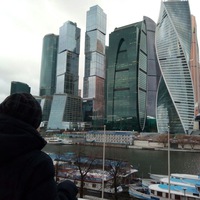
Богатство русского языка - это
 0
0
 0
0
Ответы на вопрос
 Внимание! Ответы на вопросы дают живые люди. Они могут содержать ошибочную информацию, заблуждения, а также ответы могут быть сгенерированы нейросетями. Будьте внимательны. Если вы уверены, что ответ неверный, нажмите кнопку "Пожаловаться" под ответом.
Внимание! Ответы на вопросы дают живые люди. Они могут содержать ошибочную информацию, заблуждения, а также ответы могут быть сгенерированы нейросетями. Будьте внимательны. Если вы уверены, что ответ неверный, нажмите кнопку "Пожаловаться" под ответом.

 0
0
 0
0

Все величайшие писатели и поэты нашей страны вошли также и в историю русского языка. Ведь именно они помогали ему развиваться, внося туда изменения, преобразуя его.
1)Словарный запас русского языка настолько развился, что содержит в себе очень много ответвлений. Это профессиональные, молодежные жаргоны; разнообразные тайные языки (например, язык преступного мира) и так далее.
2) Например, в русском языке, одном из немногих, существует разделение глаголов на лица. Этого нет в английском и многих других языках мира. В фонетике русского языка существует несколько делений звуков: звонкие, глухие, сонорные, только звонкие и только глухие, мягкие и твердые, только мягкие и только твердые звуки.
 0
0
 0
0

The Richness of the Russian Language
The Russian language is known for its rich and diverse vocabulary, complex grammar, and expressive nature. It has a long history and has evolved over centuries, incorporating influences from various sources. Here are some key aspects that contribute to the wealth of the Russian language:
1. Vocabulary: The Russian language has a vast vocabulary, with estimates ranging from 150,000 to 200,000 words. It includes words of Slavic origin as well as loanwords from other languages, such as French, German, English, and Latin. The extensive vocabulary allows for precise and nuanced expression in various domains, including literature, science, technology, and everyday communication.
2. Grammar: Russian grammar is highly structured and complex, with a rich system of declensions, conjugations, and grammatical cases. There are six cases in Russian (nominative, genitive, dative, accusative, instrumental, and prepositional), which allow for precise expression of relationships between words in a sentence. The grammar also includes aspects such as gender agreement, verb aspect, and verb conjugation, which add depth and flexibility to the language.
3. Expressiveness: The Russian language is known for its expressive nature. It has a wide range of words and phrases to convey emotions, feelings, and nuances of meaning. Russian literature, poetry, and songs often showcase the language's ability to evoke powerful emotions and create vivid imagery. The use of metaphors, similes, and other literary devices adds depth and beauty to the language.
4. Literary Tradition: Russian literature has a rich and influential tradition that has contributed to the development and richness of the language. Writers such as Leo Tolstoy, Fyodor Dostoevsky, Anton Chekhov, and Alexander Pushkin have produced masterpieces that have shaped the Russian language and influenced literature worldwide. The works of these writers showcase the depth and versatility of the Russian language.
5. Cultural Significance: The Russian language is an integral part of Russian culture and identity. It is the official language of Russia and is widely spoken in other countries of the former Soviet Union. The language has played a significant role in shaping Russian history, literature, art, music, and cinema. It is a means of preserving and transmitting cultural heritage.
In conclusion, the richness of the Russian language lies in its extensive vocabulary, complex grammar, expressive nature, literary tradition, and cultural significance. These factors contribute to the depth, versatility, and beauty of the language, making it a valuable asset of Russian culture and communication.
 0
0
 0
0
Топ вопросов за вчера в категории Русский язык
Последние заданные вопросы в категории Русский язык






-
Математика
-
Литература
-
Алгебра
-
Русский язык
-
Геометрия
-
Английский язык
-
Химия
-
Физика
-
Биология
-
Другие предметы
-
История
-
Обществознание
-
Окружающий мир
-
География
-
Українська мова
-
Информатика
-
Українська література
-
Қазақ тiлi
-
Экономика
-
Музыка
-
Право
-
Беларуская мова
-
Французский язык
-
Немецкий язык
-
МХК
-
ОБЖ
-
Психология
-
Физкультура и спорт
-
Астрономия
-
Кыргыз тили
-
Оʻzbek tili















